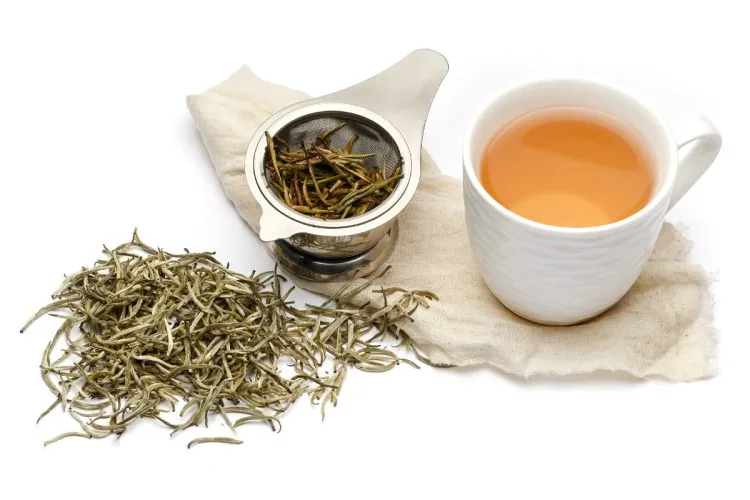White tea benefits | |

| |
Are you on a quest for a beverage that not only delights your taste buds but also offers a range of health benefits? Look no further than the enchanting realm of white tea. Revered for its delicate flavor and numerous health-promoting properties, white tea is a true gift from nature. In this article, we'll unveil the secrets behind white tea's remarkable benefits, exploring its origins, processing methods, and brewing techniques. Get ready to discover the wellness wonders that lie within a cup of white tea. White Tea: A Brief OverviewWhite tea, known for its subtle flavor and pale liquor, is one of the least processed tea varieties. Made from the young leaves and buds of the Camellia sinensis plant, white tea undergoes minimal oxidation, preserving its natural compounds. Let's delve into the fascinating world of white tea and uncover its exceptional benefits. 1. Rich in Antioxidants: Guarding Against Free RadicalsOne of the remarkable benefits of white tea lies in its abundance of antioxidants. Antioxidants are compounds that help protect our bodies from the damaging effects of free radicals, which are unstable molecules that can lead to cell damage and contribute to various health issues. White tea is particularly rich in polyphenols, a type of antioxidant known for its potent health-promoting properties.
Polyphenols in white tea have been shown to have powerful antioxidant effects, helping to neutralize free radicals and reducing oxidative stress. By reducing the impact of free radicals, white tea may contribute to overall health and well-being.
The antioxidant properties of white tea can help support cellular health. By protecting cells from oxidative damage, white tea may help reduce the risk of certain chronic conditions, such as cardiovascular disease, certain types of cancer, and age-related macular degeneration.
The antioxidant content in white tea can also benefit the health of your skin. By combating oxidative stress, white tea may help reduce the signs of aging, such as wrinkles and fine lines. Additionally, some studies suggest that white tea may have antimicrobial properties, which could be beneficial for maintaining clear and healthy skin.
To make a perfect cup of white tea, use water that has been heated to around 75-85°C (165-185°F). Steep the tea leaves for 2 to 3 minutes to extract the delicate flavors and beneficial compounds. Remember, white tea is delicate, so avoid using boiling water or steeping for too long, as it may result in a bitter taste. Frequently Asked Questions (FAQs)1. Does white tea contain caffeine? White tea does contain caffeine, but in generally lower amounts compared to black or green tea. The exact caffeine content can vary depending on factors such as the specific tea variety and brewing method. 2. Can white tea aid in weight management? While white tea alone is not a magic weight loss solution, it may have potential benefits for weight management. Some studies suggest that white tea may help boost metabolism and fat burning. However, it's important to maintain a balanced diet and active lifestyle for overall weight management. 3. Is white tea suitable for everyone? White tea is generally safe for consumption for most individuals. However, it's always a good idea to consult with your healthcare provider if you have any specific health conditions or concerns, especially if you have sensitivities to caffeine. 4. Can white tea be enjoyed iced? Absolutely! White tea can be a refreshing choice for iced tea. Brew it as usual, let it cool, and pour over ice. Add a slice of lemon or a sprig of fresh mint for an extra burst of flavor. 5. Are there different types of white tea? Yes, there are various types of white tea, including Silver Needle (Bai Hao Yin Zhen), White Peony (Bai Mu Dan), and Longevity Eyebrow (Shou Mei). Each type has its own unique characteristics and flavor profiles. 6. Can white tea be blended with other ingredients? Yes, white tea can be blended with other herbs, fruits, or flowers to create flavorful and aromatic blends. Popular additions include jasmine, chamomile, and citrus fruits. White tea offers not only a delicate and delightful tea-drinking experience but also a myriad of health benefits. From its antioxidant properties to potential disease prevention, white tea stands as a testament to the power of natural compounds. By incorporating white tea into your daily routine, you can sip your way to a healthier and more balanced lifestyle. So, why not indulge in the wellness wonders of white tea and raise your teacup to good health? | |
| Views: 224 | | |
| Total comments: 0 | |